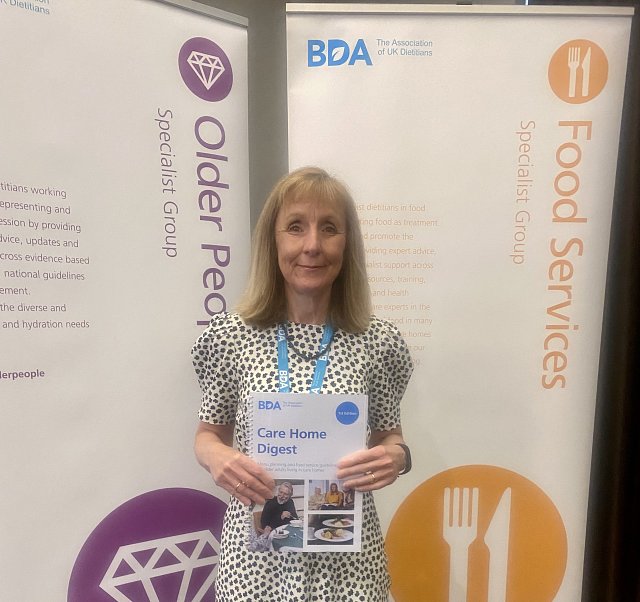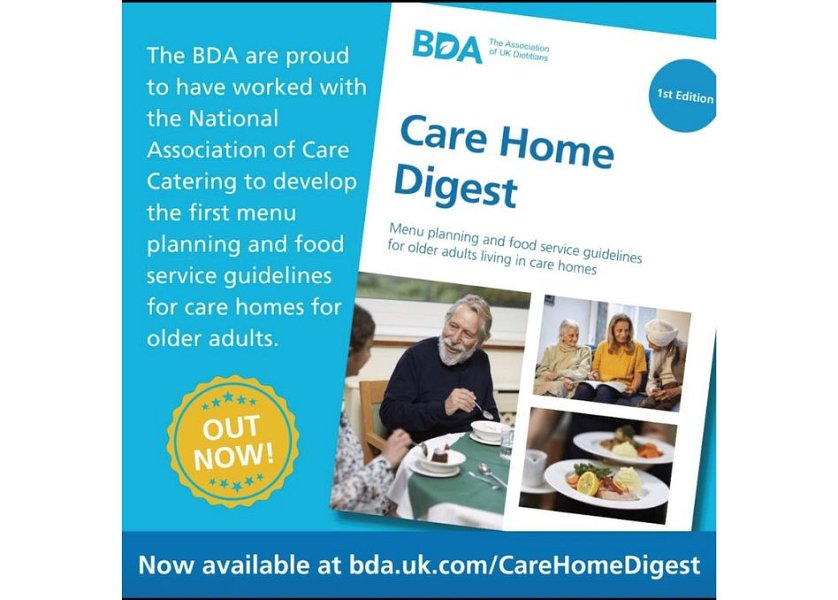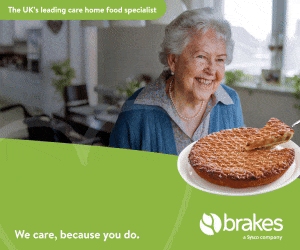BDA launches the Care Home Digest
This first of its kind resource has been designed to help both care and catering teams to provide high quality food and drink services for care home residents

After many years of discussion and planning, the British Dietetic Association (BDA) has introduced its highly anticipated Care Home Digest at a specially convened conference in Birmingham last week.
The Digest made its debut at Birmingham’s Crowne Plaza Hotel at an event that attracted both dietitians and care caterers from around the UK, which proved to be the perfect launch pad for this first-of its-kind new resource. The result of 18-months hard work by members of the BDA’s Food Services Specialist Group and Older People Specialist Group, the Care Digest is designed to provide menu planning and food service guidelines that will help both care and catering teams to provide high quality food and drink services for care home residents.
Helen Ream, Healthcare and Food Service Dietitian at Compass Group UK & Ireland for White Oaks and Vice-Chair of the BDA’s Food Services Specialist Group explains: “We realise how committed and passionate care catering teams are as they undertake the difficult task of providing meals for older and vulnerable people, many of whom have special dietary requirements, as well as the individual food preferences that are common to us all.
“Not only do catering teams have to circumnavigate these myriad challenges in order to produce meals that provide the required nutritional punch – they also have to be visually pleasing and pass the taste test too. This is a task that has been made even more difficult recently, due to the detrimental effects that the rising cost of ingredients and energy have had on already tight budgets.”
“Accordingly, this Digest builds upon the BDA’s Nutrition and Hydration Digest that covers the provision of food and drink services in hospitals and now forms part of the National Standards for Healthcare Food and Drink. It offers a clear set of guidelines that help to provide consistency and clarity in the approach to eating and drinking in care homes and helps to support staff to better understand what they should be providing.”

The very receptive audience at the launch event enjoyed a series of presentations that covered the rationale behind each of the Care Home Digest’s four different sections, which between them cover aspects of menu planning, and food service, as well as catering for special dietary needs. Also included are two checklists that will help homes to review their current services and identify which, if any, areas can be further improved.
The first section of the guide highlights how our need for good nutrition and hydration changes as we age and advises how these needs can best be met in older people. It also advises how to screen for malnutrition and dehydration and suggests how an appropriate care plan can be produced for each resident that addresses their individual requirements.
The second section looks at food service and suggests what can be done to help ensure that every mealtime becomes a positive experience for residents. Topics covered include fostering a whole home approach to the meal service, how to create a welcoming dining room environment and how to monitor residents’ feedback so that any appropriate tweaks can be made.
The third section discusses menu planning and provides lots of useful guidance on how to design menus to meet both basic nutritional needs and residents’ individual preferences. There is a wealth of information on nutritional targets and the energy values of different food and drinks.
Finally, the fourth section of the Digest looks at special diets, including those that address specific medical needs and cultural and religious preferences and suggests how food can be effectively fortified for those at risk of malnutrition.
Ream continues: “The Care Home Digest is the first guide of its kind - no such resource currently exists in England - and it should complement existing dietetic guidelines available in the other UK nations.
“We know that food and drink can have a huge impact on residents’ quality of life and is often one of the highlights of the daily routine, but because many residents’ have underlying health conditions that can often be exacerbated by undernutrition and dehydration, providing appropriate and appetising meals can be even more challenging.
And, since we are aware that many care homes are unable to access a food service dietitian service, the Care Home Digest seeks to remedy this deficit.”
She adds: “Having a clear set of standards and guidance that provides consistency and clarity in the approach for eating and drinking in care homes, will enable managers, nurses, care and support staff and caterers to better understand their obligations.”

Neel Radia, National Chair of the National Association of Care Catering, which has been working in collaboration with the BDA in the Digest’s preparation, says: “This document will help to enable consistency across the care home sector. A multidisciplinary team bringing hospitality and nutrition together is the best solution for an all-encompassing approach to meeting residents’ nutritional needs and this must-have document covers everything that is required to make this approach successful.
“I’d also like to thank Helen Ream and the entire team who have worked so hard in putting this together and I wholeheartedly recommend it to everyone operating within in the care sector.”
Ream concludes: “It is hoped that the Care Digest will also support the Care Quality Commission and other nations’ inspectorates to know what they should be assessing and checking for during their visits to care homes so that they can further influence the development of improved standards in this vital aspect of care.”
The Care Home Digest is freely available for downloading in pdf format here.








